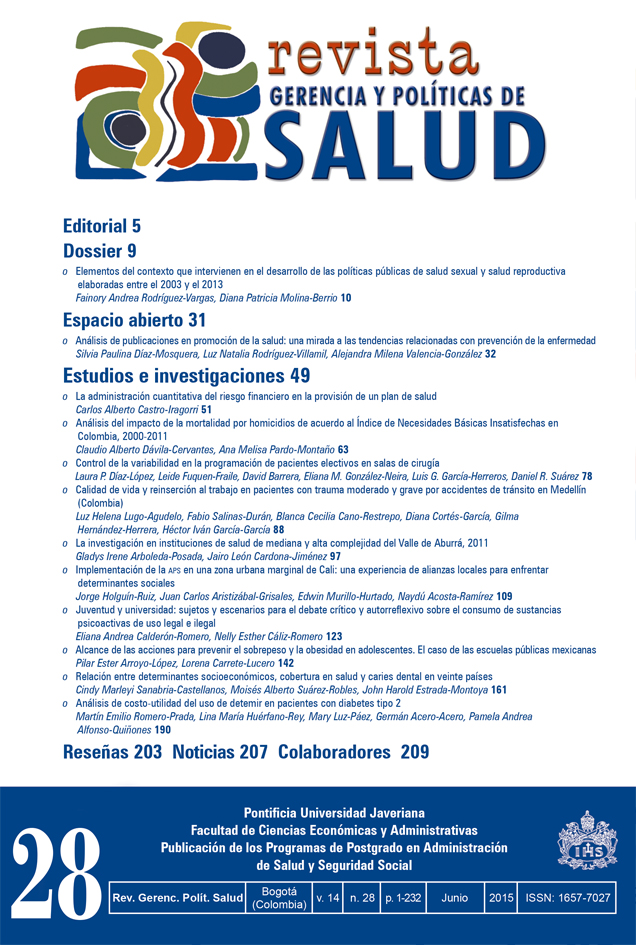Resumo
Objetivo: realizar análise de custo-efetividade para avaliar o tratamento com as diferentes opções de insulina em pacientes diabéticos tipo 2. Metodologia: partindo da análise realizada previamente por Romero et al., foi atualizada a informação e incluiu-se análise específica para qualidade de vida. O modelo de Markov simulou pacientes tratados com insulina nph, detemir ou glargina. Eventos de hipoglicemia foram considerados além das complicações. Os custos correspondem ao preço máximo de regulamentação por dose. Os custos de eventos são tirados de registos do sistema de informação de transações de entidades prestadoras de saúde no ano 2014. Resultados: os avac do detemir calculam-se em 2,604, em comparação com 2,545 da glargina e 2,533 do nph. As análises de sensibilidade demostram dominância de detemir. Conclusões: detemir é uma opção favorável por sua segurança, efetividade e custo, demostrando benefícios medidos em avac sobre os comparadores.
Aviso de direitos autorais
A revista Gerencia y Políticas de Salud está registrada sob a licença Creative Commons Recognition 4.0 International. Portanto, este trabalho pode ser reproduzido, distribuído e comunicado publicamente em formato digital, desde que o nome dos autores e da Pontificia Universidad Javeriana sejam reconhecidos. É permitido citar, adaptar, transformar, autoarquivar, republicar e criar a partir do material, para qualquer finalidade (inclusive comercial), desde que a autoria seja devidamente reconhecida, e um link do trabalho original seja fornecido e indicar se as alterações tiverem sido feitas. A Pontificia Universidad Javeriana não detém os direitos sobre os trabalhos publicados e os conteúdos são de responsabilidade exclusiva dos autores, que preservam seus direitos morais, intelectuais, de privacidade e de publicidade.
O endosso da intervenção do trabalho (revisão, correção de estilo, tradução, layout) e sua posterior divulgação são concedidos através de uma licença para uso e não através de uma transferência de direitos, o que significa que a revista e a Pontificia Universidad Javeriana se eximem de qualquer responsabilidade que podem surgir de má conduta ética por parte dos autores. Como resultado da proteção fornecida pela licença de uso, a revista não é obrigada a publicar retratações ou modificar as informações já publicadas, a menos que a errata surja do processo de gestão editorial. A publicação dos conteúdos desta revista não representa regalias para os contribuintes.


